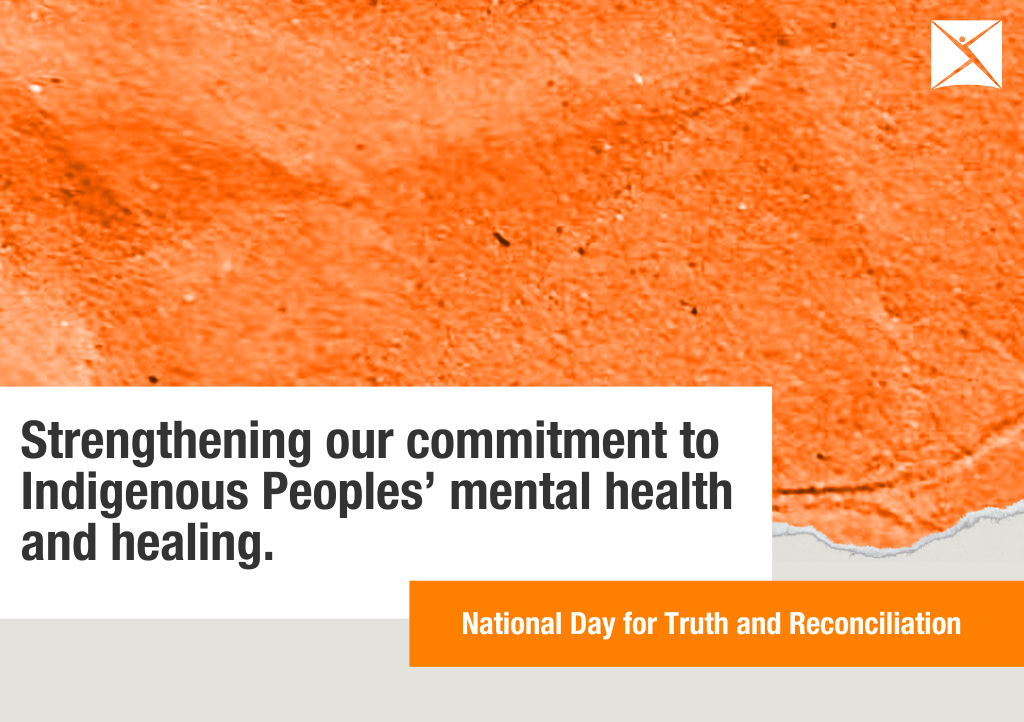Menu
Close

The Canadian Mental Health Association marks National Day for Truth and Reconciliation
Sep 23, 2024
September 30 marks National Day for Truth and Reconciliation and Orange Shirt Day. Orange Shirt Day began as a day of remembrance and action to promote awareness about the impact of the residential “school” system on Indigenous Peoples in Canada. Residential “schools” were part of the wider system of colonial and genocidal government policies. These are not merely historical. Their legacy lives on and continues to impact the mental health and well-being of Indigenous Peoples.
At CMHA National, we’re committed to Indigenous Truth and Reconciliation
Our National office in Toronto is situated on the traditional territory of many nations including the Mississaugas of the Credit, the Anishnabeg, the Chippewa, the Haudenosaunee and the Wendat peoples and is now home to many diverse First Nations, Inuit and Métis peoples. We also acknowledge that Toronto is covered by Treaty 13 signed with the Mississaugas of the Credit, and the Williams Treaties signed with multiple Mississaugas and Chippewa bands.
We recognize the impacts of colonization on mental health care for Indigenous Peoples in this country. We’re reflecting on our role and responsibilities in this area and working to address the need for an inclusive and anti-racist approach to delivering our services in communities across Canada.
Our National Truth and Reconciliation working group guides our efforts to decolonize and indigenize the CMHA Federation, our programs, policies, and practices. CMHA National commits to advancing reconciliation, better supporting Indigenous communities, and working as allies with Indigenous mental health organizations to advocate for increased funding for Indigenous-led mental health services.
We hired a senior manager of Indigenous Wellness and Reconciliation who has helped us engage in challenging conversations across our Federation to understand and acknowledge CMHA’s history and our role in colonization. We’re learning together while listening to Indigenous voices—experiences, perspectives, and knowledge—as we continue our journey toward reconciliation. The outcome of this effort will be the creation of an action plan to guide the important work of true reconciliation, and we look forward to sharing more about this as we progress.
